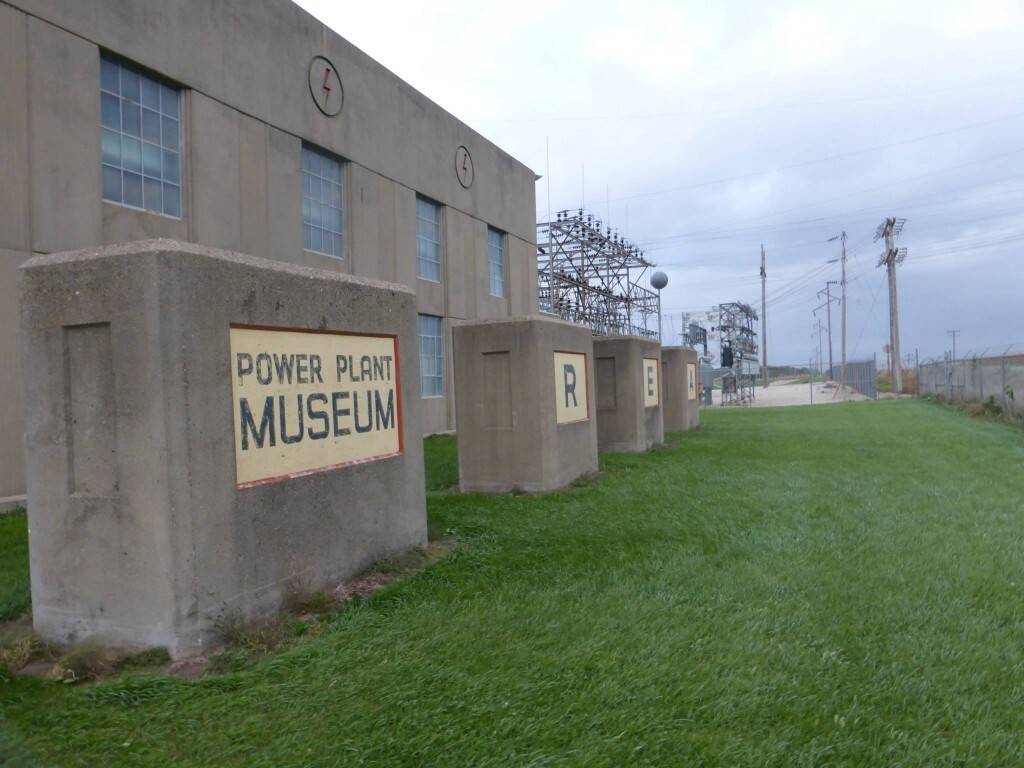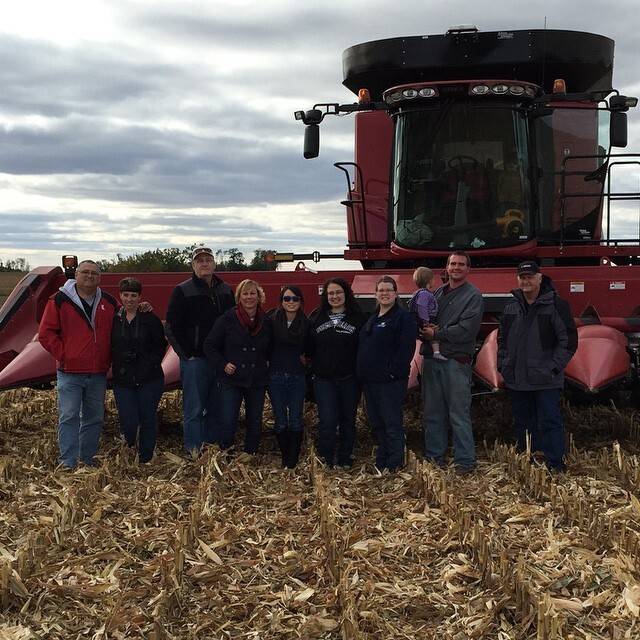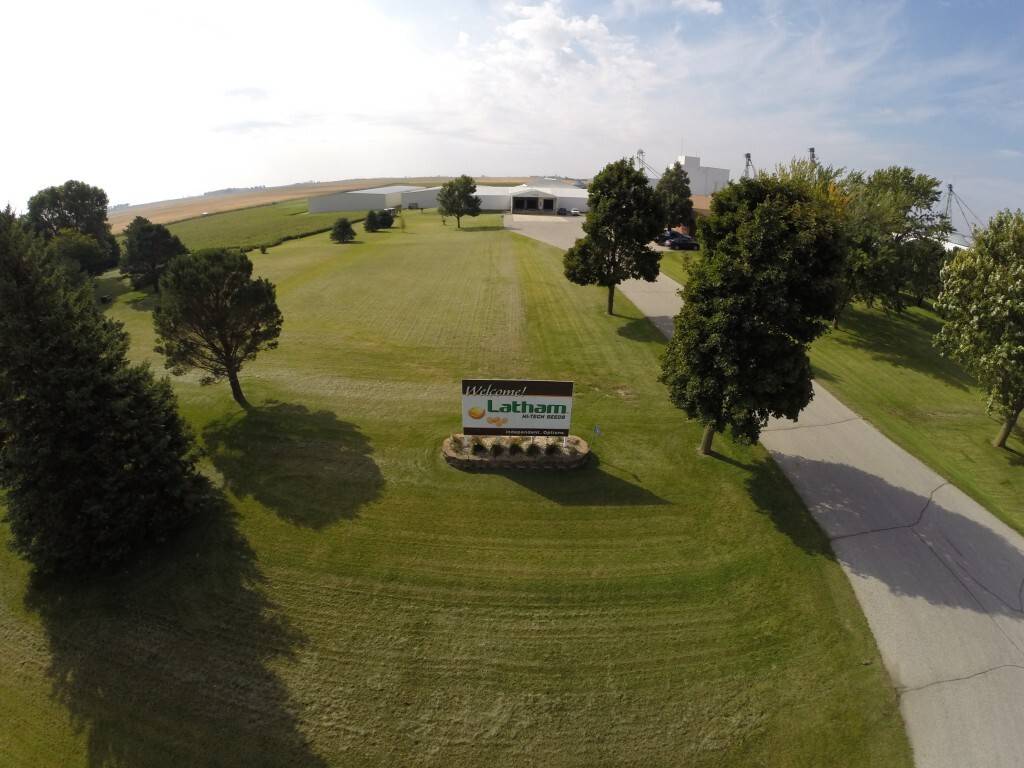Harvest is underway in North Central Iowa, however, I’ve been spending as much talking about combining as I have actually spent in the field during the past two weeks.
In last week’s blog, I wrote about the opportunity I had to visit Mason City schools and answer some great questions from sixth graders about #RealPigFarming and crops. My main message was to remind these middle school students, who are like sponges absorbing information, to keep an open mind when reading information. I reminded them to consider the source of information and to not take all printed material as fact.
Over the weekend, I had the opportunity to spend time hosting a group of bloggers on our 4th Annual Franklin County Harvest Blogger’s Tour. Honestly, this is one event that I always look forward to as its main purpose is to showcase our county’s rich agricultural heritage and to help bridge the gap between farmers and consumers.
This event has been held the first weekend of October since 2011. This year, bloggers begin arriving at the Country Heritage B&B on Friday afternoon. We then took them on a tour of the first farmer-owned, rural electricity generating plant. In the 1930s, only 10 percent of U.S. farms had electricity. Interestingly enough, this electric utility plant in rural Hampton was the first rural electric utility plant west of the Mississippi. We made history right here in our own backyard – and this was the first time I’d actually visited the museum myself! I had a great time walking through the REA Museum, which is full of fascinating things from the beginnings of electricity.

From the REA Museum, the bloggers toured Beeds Lake State Park. This lake was constructed by manual labor during the Great Depression. One focal point of the park is the 170 foot-long spillway – built by the Civilian Conservation Corps in the 1930s – that consists of horizontal layers of limestone that abruptly drops 40 feet. Another unique feature of Beeds Lake is the causeway near the lodge, providing more than one-third mile of shoreline fishing, as well as a convenient pathway for hikers and joggers.
 Our final stop on Friday evening was the Learning Tree Lodge at the Carlson Tree Farm. The Carlsons have built a very nice retreat in rural Franklin County, and there is no charge to use their comfortable learning center. Great food and wine tasting was combined with the entertainment Dennis has a reputation of providing. As a former county conservation officer, he always teaches us something new about nature. We had the the opportunity to taste roasted meal worms… did I mention the wine tasting? Yes, Franklin County is home to Townsend Winery!
Our final stop on Friday evening was the Learning Tree Lodge at the Carlson Tree Farm. The Carlsons have built a very nice retreat in rural Franklin County, and there is no charge to use their comfortable learning center. Great food and wine tasting was combined with the entertainment Dennis has a reputation of providing. As a former county conservation officer, he always teaches us something new about nature. We had the the opportunity to taste roasted meal worms… did I mention the wine tasting? Yes, Franklin County is home to Townsend Winery!
Saturday morning started early. We arrived on the Franklin County Fairgrounds at 8 AM where we toured our county’s farm museum. Many questions were asked and answered about the history of farming while we looked at old farm equipment. Every time I go through this building, I see something I had not noticed before. There’s such so much to see! It was a great stop.
From the fairgrounds, our busload of bloggers went downtown to shop the Hampton specialty stores. I had to head out to do my chores, but from the pictures posted, it looks like the shoppers had a good time. With shopping bags in hand, they boarded the buses for a trip to Latham Hi‑Tech Seeds, with headquarters on a Franklin County Century Farm.
John and Shannon are the third generation of Lathams to manage the family-owned seed business. They have added hybrid seed corn and Hi‑Tech forage to the product lineup, providing farmers with even more choices for their fields. Bloggers enjoyed learning how the Lathams contract with local farmers to produce seed beans, which are then brought to their plant in Alexander upon harvest. Controlling the handling of the soybeans from harvest through conditioning and bagging is what the Latham believes is key to their reputation for quality seed.
Following a soybean facility tour, we all enjoyed celebrating October #Pork Month with succulent loin sandwiches and Val Plagge’s Sweet & Spicy Hog Wild Baked Beans. While we enjoyed our delicious lunch, we also enjoyed a presentation about the North Iowa Ag in the Classroom group. Just four women talk to 10,000 kids a year about farming! Even though we live in a rural state, we learned that some North Iowa school kids believe corn stalks are bamboo. These ladies provide classroom materials about #RealPigFarming, ethanol production and soil conservation to name a few. All are important topics – topics that are greatly misunderstood by many adults.

As enjoyable as all of these tours were, the highlight of the weekend was definitely the combine rides! Saturday afternoon we traveled to Roy and Jeanie Arends’ farm. Although the soybeans were a little wet from all the rain we’ve had, Roy used it as an opportunity to explain why his ground needed to be tiled. This turned in to quite a question and answer session! Roy’s son, Andrew, even explained about GMOs.
Half of the blogger group stayed at the Arend’s farmer and half went to Ian and Val Plagge’s farm to combine some corn. Val even gave bloggers the chance to visit their pigs.
All of these tours and visits led to great understanding and some really interesting blog posts! Follow along with the hashtag #FranklinCoHarvest on Twitter and Facebook for a great recap from these bloggers:
- Corn, Beans, Pigs and Kids
- Donna Hup
- It’s Just Life – Finding the Extraordinary in the Ordinary
- Jeni Eats
- Sawdust and Embryos
- The Walking Tourists
Thanks to everyone who participated this year! It was an honor to help host this group of enthusiastic bloggers. Not only do they share their experiences here in Franklin County with many more people, but we have an opportunity to learn from them, too. It was another successful weekend, and I’m proud to have been a part of it.

